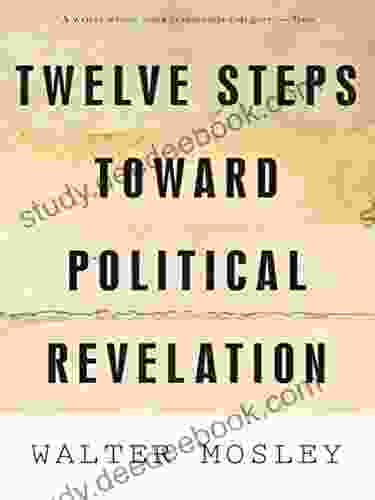Executive Secrets: Covert Action and the Presidency

Covert action is a secret and often controversial tool used by the US government to achieve its foreign policy objectives. It involves activities that are not publicly acknowledged or attributed to the government, and can range from espionage and sabotage to political influence and assassination.
4.6 out of 5
| Language | : | English |
| File size | : | 1309 KB |
| Text-to-Speech | : | Enabled |
| Screen Reader | : | Supported |
| Enhanced typesetting | : | Enabled |
| X-Ray | : | Enabled |
| Word Wise | : | Enabled |
| Print length | : | 207 pages |
The use of covert action dates back to the early days of the republic. In 1798, President John Adams authorized the use of secret agents to gather intelligence on French activities in the United States. During the Cold War, covert action was used extensively by the CIA to undermine communist governments and support anti-communist forces around the world.
Today, covert action is still used by the US government, but it is subject to strict legal and ethical guidelines. The National Security Act of 1947 requires the president to approve all covert action plans, and the Intelligence Oversight Act of 1980 requires that Congress be notified of all significant covert actions.
There are many different types of covert action, but some of the most common include:
- Espionage: The collection of intelligence through secret means, such as spying and eavesdropping.
- Sabotage: The destruction or disruption of enemy property or infrastructure.
- Political influence: The use of secret means to influence the political process in a foreign country, such as funding political parties or manipulating elections.
- Assassination: The killing of a foreign leader or other high-value target.
Covert action can be a powerful tool for achieving US foreign policy objectives, but it also carries significant risks. Covert actions can be difficult to control, and they can sometimes have unintended consequences. For example, the CIA's covert support for the Contras in Nicaragua led to the Iran-Contra scandal, which damaged the Reagan administration and undermined public trust in the intelligence community.
The use of covert action is a complex and controversial issue. There are valid arguments to be made both for and against the use of covert action. Ultimately, the decision of whether or not to use covert action is a difficult one that must be made on a case-by-case basis.
The History of Covert Action
The use of covert action dates back to the early days of the republic. In 1798, President John Adams authorized the use of secret agents to gather intelligence on French activities in the United States. During the War of 1812, the US government used covert action to support anti-British forces in Canada.
In the 20th century, covert action became a more common tool of US foreign policy. During the Cold War, the CIA used covert action extensively to undermine communist governments and support anti-communist forces around the world. The CIA's covert operations included everything from funding political parties to assassinating foreign leaders.
After the Cold War, the use of covert action declined somewhat. However, it has continued to be used by the US government to achieve its foreign policy objectives. For example, the CIA used covert action to support the overthrow of the Taliban in Afghanistan in 2001.
The Methods of Covert Action
There are many different methods of covert action. Some of the most common include:
- Espionage: The collection of intelligence through secret means, such as spying and eavesdropping.
- Sabotage: The destruction or disruption of enemy property or infrastructure.
- Political influence: The use of secret means to influence the political process in a foreign country, such as funding political parties or manipulating elections.
- Assassination: The killing of a foreign leader or other high-value target.
Covert action can be carried out by a variety of different organizations, including the CIA, the military, and the State Department. Covert actions are often planned and executed by a small number of people, and they are typically kept secret from the public.
The Consequences of Covert Action
Covert action can be a powerful tool for achieving US foreign policy objectives, but it also carries significant risks. Covert actions can be difficult to control, and they can sometimes have unintended consequences. For example, the CIA's covert support for the Contras in Nicaragua led to the Iran-Contra scandal, which damaged the Reagan administration and undermined public trust in the intelligence community.
Other potential consequences of covert action include:
- Loss of life: Covert actions can sometimes lead to the death of innocent civilians.
- Damage to US reputation: Covert actions that are exposed can damage the reputation of the United States and make it more difficult to conduct diplomacy.
- Strained relations with other countries: Covert actions that are directed against other countries can strain relations and make it more difficult to cooperate on other issues.
The decision of whether or not to use covert action is a difficult one that must be made on a case-by-case basis. There are valid arguments to be made both for and against the use of covert action. Ultimately, the decision must be made by the president, with the advice of his or her national security advisors.
Covert action is a complex and controversial tool of US foreign policy. It can be a powerful tool for achieving US objectives, but it also carries significant risks. The decision of whether or not to use covert action is a difficult one that must be made on a case-by-case basis.
4.6 out of 5
| Language | : | English |
| File size | : | 1309 KB |
| Text-to-Speech | : | Enabled |
| Screen Reader | : | Supported |
| Enhanced typesetting | : | Enabled |
| X-Ray | : | Enabled |
| Word Wise | : | Enabled |
| Print length | : | 207 pages |
Do you want to contribute by writing guest posts on this blog?
Please contact us and send us a resume of previous articles that you have written.
 Book
Book Page
Page Genre
Genre Reader
Reader Paperback
Paperback Magazine
Magazine Sentence
Sentence Bookmark
Bookmark Shelf
Shelf Glossary
Glossary Foreword
Foreword Preface
Preface Synopsis
Synopsis Annotation
Annotation Footnote
Footnote Codex
Codex Bestseller
Bestseller Library card
Library card Biography
Biography Memoir
Memoir Thesaurus
Thesaurus Narrator
Narrator Character
Character Resolution
Resolution Card Catalog
Card Catalog Stacks
Stacks Archives
Archives Periodicals
Periodicals Study
Study Scholarly
Scholarly Reserve
Reserve Academic
Academic Rare Books
Rare Books Special Collections
Special Collections Interlibrary
Interlibrary Literacy
Literacy Study Group
Study Group Storytelling
Storytelling Reading List
Reading List Book Club
Book Club Whitney Hanson
Whitney Hanson Lily Wang
Lily Wang Oscar Dames
Oscar Dames Zadie Smith
Zadie Smith Rob Chapman
Rob Chapman Keith Baker
Keith Baker Erika Parker Price
Erika Parker Price Robert D Behn
Robert D Behn Oliver Optic
Oliver Optic Jeffrey N Wasserstrom
Jeffrey N Wasserstrom George N Fourlas
George N Fourlas Bookdrawer
Bookdrawer Richard Carman
Richard Carman Annabel Chase
Annabel Chase Peter J Levinson
Peter J Levinson Brandy Woods Smith
Brandy Woods Smith Christine M Germain
Christine M Germain Linda Legarde Grover
Linda Legarde Grover Christopher Duval
Christopher Duval Nikita
Nikita
Light bulbAdvertise smarter! Our strategic ad space ensures maximum exposure. Reserve your spot today!

 Hayden MitchellThe Providence of Neighboring Bodies: An Exploration of Oberon Modern Plays
Hayden MitchellThe Providence of Neighboring Bodies: An Exploration of Oberon Modern Plays
 Rudyard KiplingA Comprehensive Guide to Early Graduation: Strategies and Tips for Success
Rudyard KiplingA Comprehensive Guide to Early Graduation: Strategies and Tips for Success Hugo CoxFollow ·7.6k
Hugo CoxFollow ·7.6k Derek CookFollow ·2.1k
Derek CookFollow ·2.1k Steve CarterFollow ·10.4k
Steve CarterFollow ·10.4k Billy FosterFollow ·16.2k
Billy FosterFollow ·16.2k Cody RussellFollow ·5.4k
Cody RussellFollow ·5.4k Jonathan HayesFollow ·2.3k
Jonathan HayesFollow ·2.3k Henry JamesFollow ·2.9k
Henry JamesFollow ·2.9k Matthew WardFollow ·13.1k
Matthew WardFollow ·13.1k

 Dominic Simmons
Dominic SimmonsIcky Island: An Unforgettable Adventure for Kids!
Introducing Icky Island: A Delightful One...

 Carlos Fuentes
Carlos FuentesThe Midnight Breed: Embracing the Shadows and Unlocking a...
Welcome to the captivating world of...

 Ike Bell
Ike BellTwelve Steps Toward Political Revelation: A Path to...
Politics, often perceived as a complex and...

 Cameron Reed
Cameron ReedTravels in Arizona Goldfield: Unraveling the Threads of...
Nestled amidst the rugged...

 John Grisham
John GrishamFlashpoints of Cinema History and Queer Politics:...
The relationship between cinema history and...
4.6 out of 5
| Language | : | English |
| File size | : | 1309 KB |
| Text-to-Speech | : | Enabled |
| Screen Reader | : | Supported |
| Enhanced typesetting | : | Enabled |
| X-Ray | : | Enabled |
| Word Wise | : | Enabled |
| Print length | : | 207 pages |







